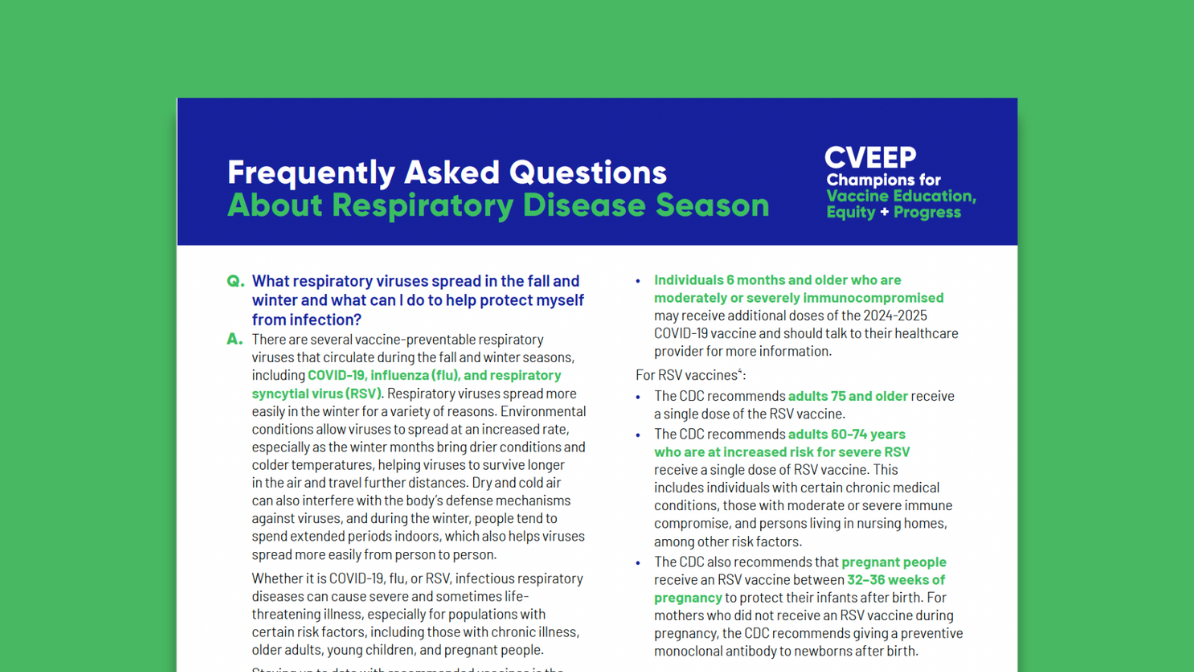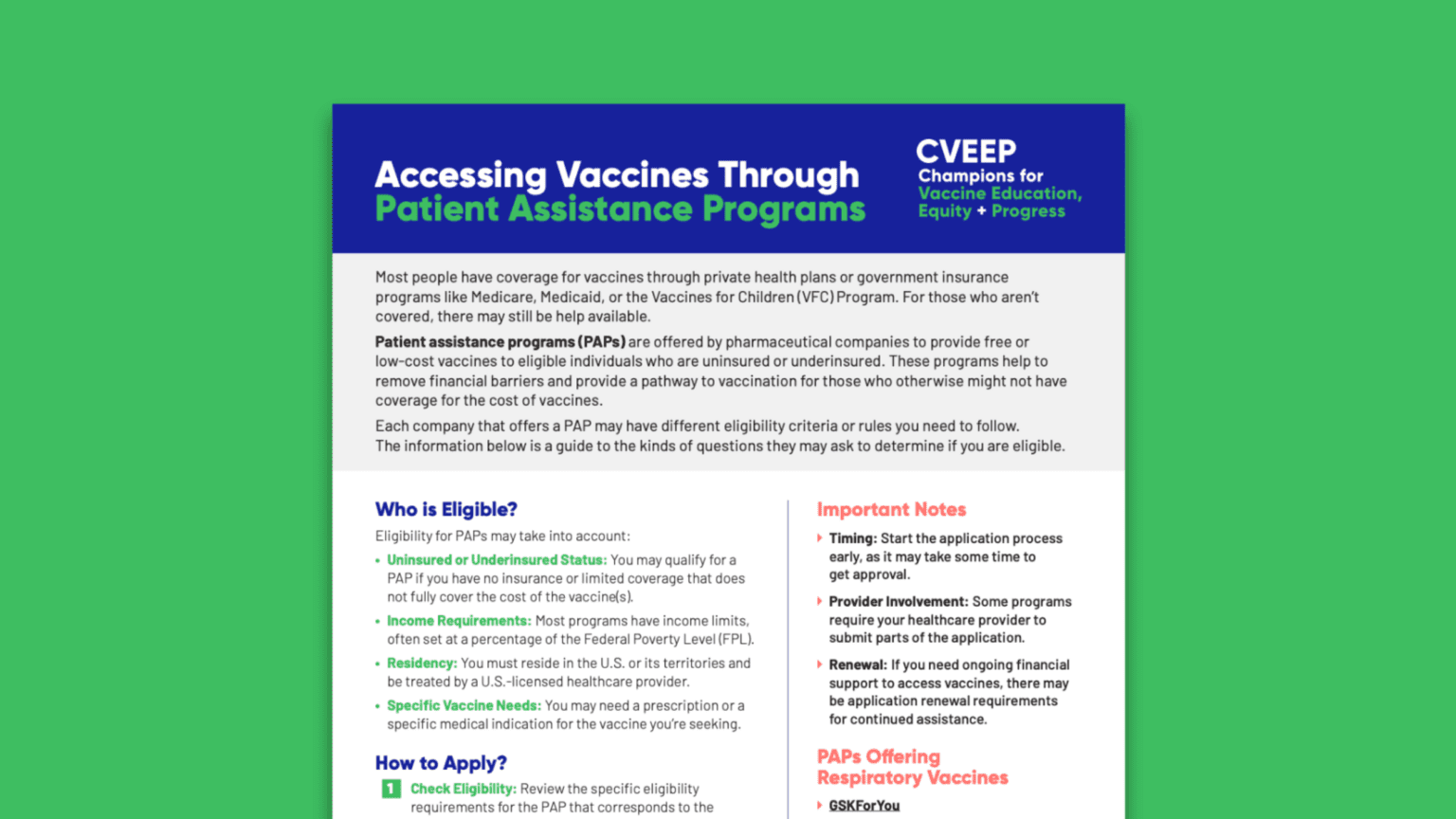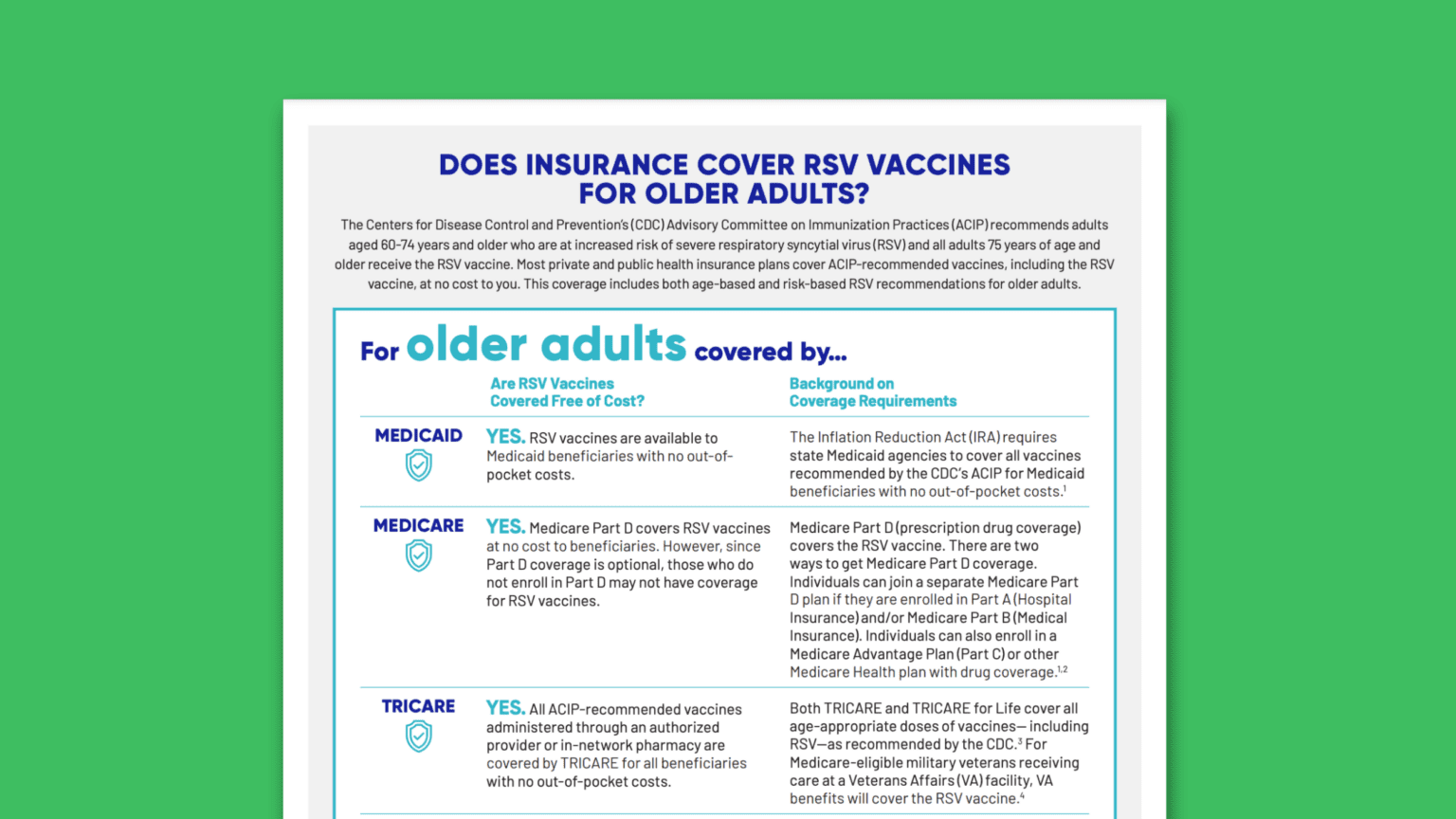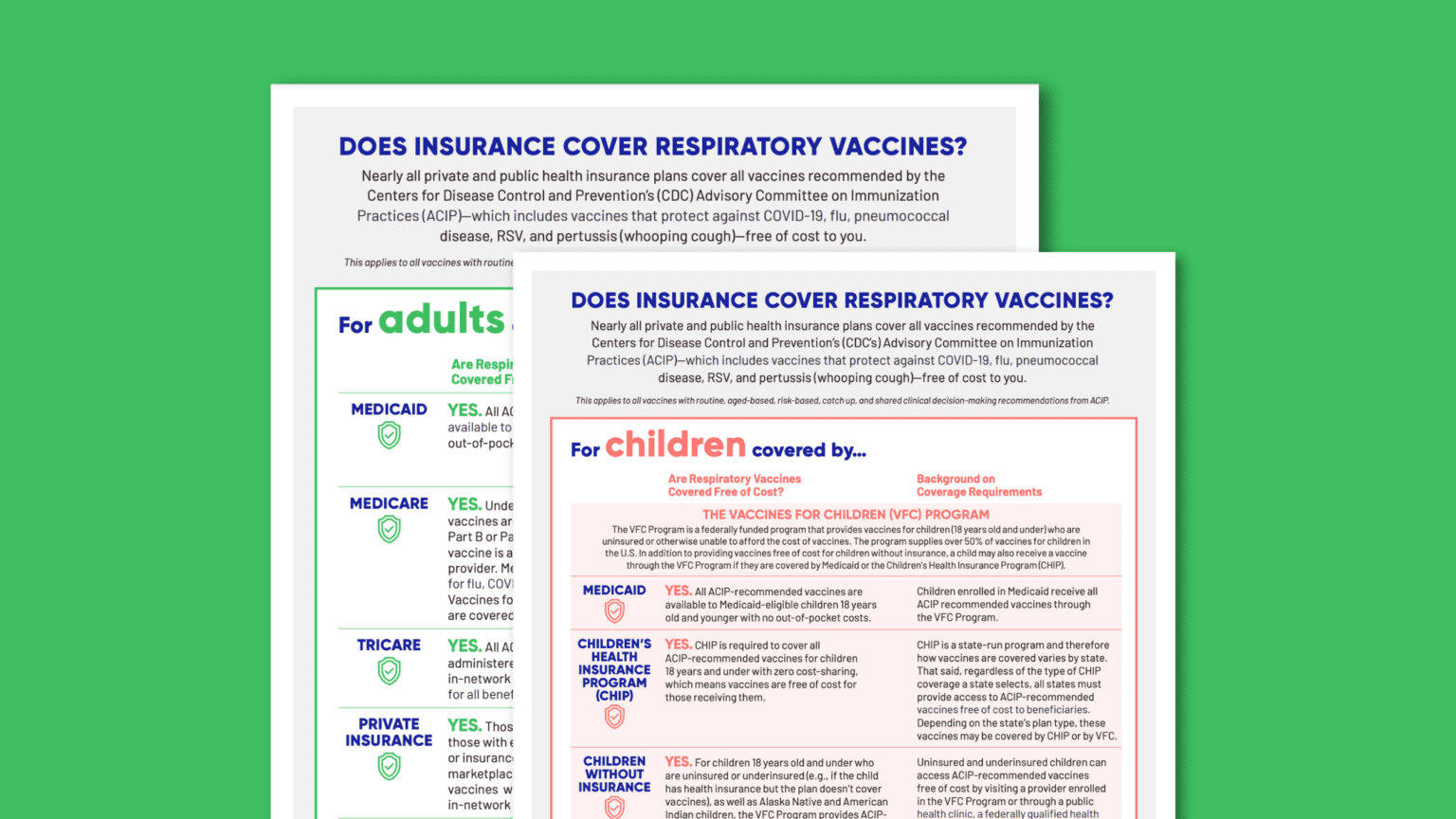





Ensuring that all individuals have access to recommended vaccines — the most effective way to protect both children and adults from many serious and potentially deadly diseases — is a public health priority. Several federal programs exist to advance vaccine access and equity. For more than 30 years, the Vaccines for Children (VFC) Program, a federally funded program, has provided all ACIP-recommended vaccines free of cost to children who may not otherwise be able to be vaccinated due to inability pay. Furthermore, in response to COVID-19 vaccines’ transition to the commercial market, CDC and HHS established the Bridge Access Program, which provides free COVID-19 vaccines for the 25-30 million adults who do not have health insurance or whose health insurance does not cover all COVID-19 vaccine costs.
However, as the Bridge Access Program is set to expire at the end of 2024, the U.S. may soon face a major gap in vaccine equity as uninsured adults will be without a federal program that ensures their access to free vaccines. Given the success of the VFC program, public health advocates have called for a Vaccines for Adults or Vaccines for All program that would ensure that both children and adults—regardless of their insurance status—have access to all recommended vaccines.
To further this ongoing conversation, the COVID-19 Vaccine Education and Equity Project hosted an online event aimed at examining the need for a federal vaccine program such as Vaccines for Adults or Vaccines for All. Panelists discussed the low rates of recommended adult immunizations and the need for a federal program that ensures adults’ access to vaccines, the success of the VFC program as a model, and the potential impacts of the creation of such a program.
Panelists included:
Vaccines are among the most effective ways to help protect children from many serious and potentially deadly diseases. Unfortunately, the number of children in the U.S. who are up to date on routine vaccinations has declined in recent years, putting them at increased risk for infection. This continued backslide in childhood immunizations and low rates of COVID-19 vaccination is especially alarming as we approach winter months when cases of respiratory illness typically increase. With updated COVID-19 vaccines now available, there is an opportunity to reinforce the importance of pediatric vaccination and answer parents’ questions about recommended vaccines, coadministration, and coverage when administering annual flu vaccines or during well-child visits.
To help address these and other questions, the CVEEP and the National Foundation for Infectious Diseases (NFID) co-hosted an online event to examine how the federally funded Vaccines for Children (VFC) Program covers payment of COVID-19 vaccines for children. During the 60-minute webinar, panelists discussed the importance of VFC, including eligibility and how the program covers updated COVID-19 vaccines, and proven strategies for combatting disparities in childhood immunization rates.
Panelists included:
The discussion was moderated by Patricia (Patsy) A. Stinchfield, RN, MS, CPNP, NFID President, past voting member and current liaison to the CDC Advisory Committee on Immunization Practices (ACIP) representing the National Association of Pediatric Nurse Practitioners (NAPNAP).
In light of the end of the COVID-19 public health emergency, the recent strain selection for the next updated COVID-19 vaccine, and the transition from government supply to traditional coverage for COVID-19 vaccines, consumers, health care providers and other stakeholders have a number of questions. To help provide clarity, the COVID-19 Vaccine Education and Equity Project (CVEEP) and Vaccinate Your Family hosted a webinar with CDC, FDA, and HHS experts to discuss the latest guidance on who should receive an additional updated vaccine, dosing, and coadministration, in addition to COVID-19 vaccine coverage, access, and availability.
Panelists included:
As the public health emergency for COVID-19 ends on May 11th, there are many questions about what to expect as COVID-19 vaccines and treatments transition from the federal Public Health Emergency (PHE) phase to the traditional healthcare marketplace, including issues around coverage, access and availability. To help address these and other questions, the COVID-19 Vaccine Education and Equity Project (CVEEP) held a webinar for its over 250 partners, bringing together medical and policy experts to breakdown the anticipated changes impacting COVID-19 vaccines and treatments in the post PHE environment.
Panelists included: